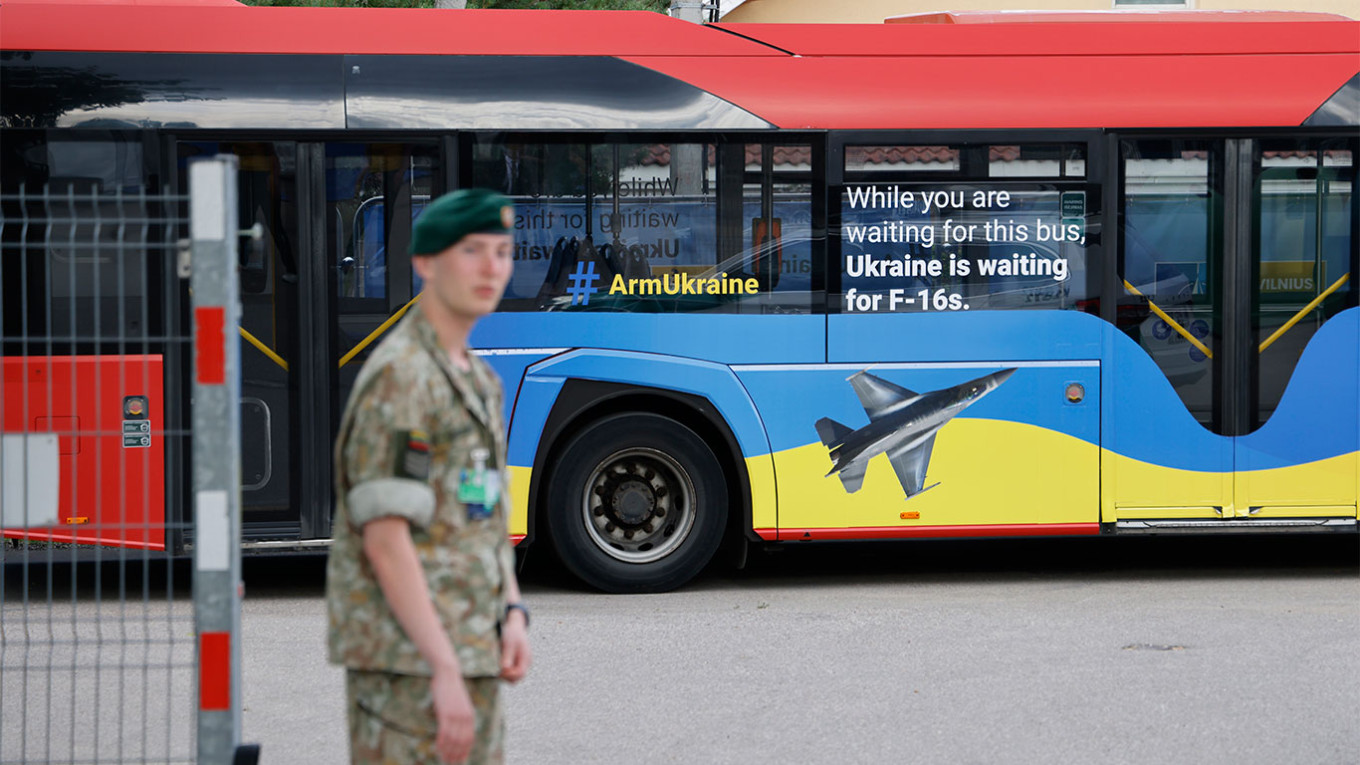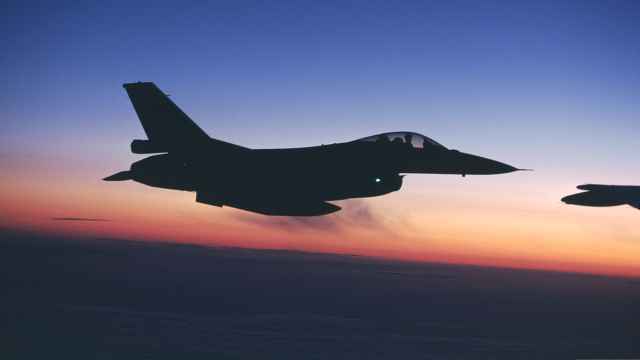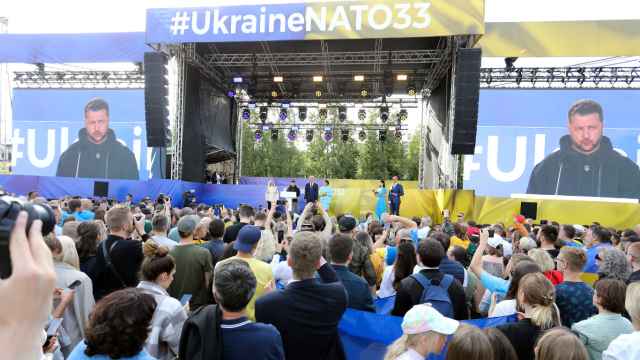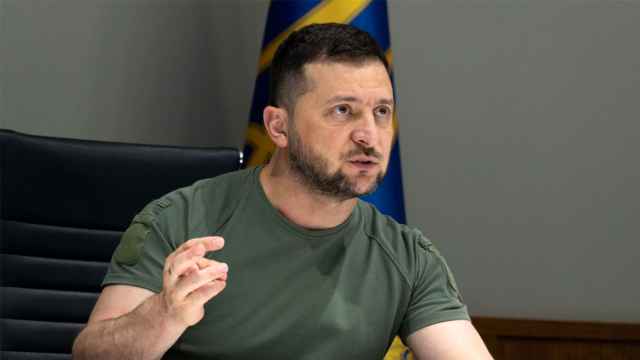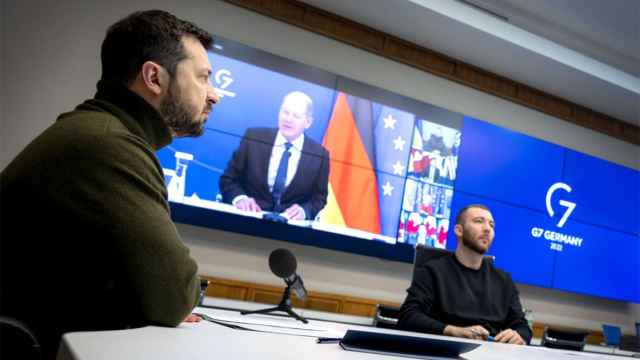Western powers will offer Ukraine a package of long-term security commitments on Wednesday, after NATO dashed President Volodymyr Zelensky's hopes of a clear timeline for joining the alliance.
The Ukrainian leader was to hold talks with NATO's 31 leaders at their summit in the Lithuanian capital Vilnius, a day after blasting them for not moving faster to bring Ukraine into the fold.
In an effort to reassure the Ukrainian leader, the G7 group of nations is expected to issue a declaration on how they will help Kyiv defeat Russia and deter any new aggression in the years to come while it sits in NATO's waiting room.
As he arrived for the meeting, Zelensky said he wanted to get on the "same page" with NATO over what were the conditions for joining the alliance.
"We will speak today and fight for these security guarantees for Ukraine on the way to NATO," he said before striding up the red carpet.
The G7 announcement will provide a framework under which individual nations will later agree bilateral deals with Kyiv detailing the weapons they will give.
The West wants to send a message to Russian President Vladimir Putin that he cannot keep the war grinding in the hope that international backing for Ukraine will eventually falter.
"This multilateral declaration will send a significant signal to Russia that time is not on its side," White House advisor for European affairs Amanda Sloat said.
U.S. President Joe Biden has previously suggested a model for Ukraine similar to one under which Washington has committed to giving Israel $3.8 billion in military aid per year over a decade.
Russia launched drone strikes on Kyiv for the second night in a row, the head of the city's military administration said early Wednesday.
All of the Iran-made Shahed explosive drones launched at Kyiv were "detected and destroyed," Serhiy Popko said on Telegram, adding "there was no information about victims or destruction as of now."
'Absurd'
Western backers have already sent weapons worth tens of billions to Ukraine to help it fight back against Russia's invasion.
Germany on Tuesday said it would provide more tanks, Patriot missile defenses and armor vehicles worth another 700 million euros ($772 million).
France said it was sending long-range missiles and a coalition of 11 nations announced they will start training Ukrainian pilots on F-16 jets from next month.
But the pledges, while desperately needed by Ukraine's troops, fall short of Zelensky's aspirations of putting Kyiv under NATO's collective defense umbrella.
NATO leaders vowed after the first day of their summit that "Ukraine's future is in NATO" and shortened the eventual process Kyiv would have to go through to enter the alliance.
"We will be in a position to extend an invitation to Ukraine to join the alliance when allies agree and conditions are met," a statement said.
But that didn't go much beyond a 2008 vow on future membership, and reflects the concerns of dominant power the United States about being dragged into a potentially nuclear conflict with Russia.
Zelensky had earlier fired a broadside saying that failure to issue Ukraine a timeframe for joining was "absurd." "Uncertainty is weakness," he thundered.
Frustration
Estonian Prime Minister Kaja Kallas said she understood Ukraine's "frustration" as it desperately seeks to get into NATO's protective embrace.
She said she hoped written security commitments would show Ukraine that Western arms will keep flowing even if leaders are voted out in key countries supporting Kyiv.
As part of their attempt to convince Zelensky that Kyiv is moving closer to the alliance, NATO organized an inaugural meeting of a Ukraine-NATO council with him in Vilnius.
That gives him more of a seat around the table to set the agenda in talks with the alliance, but is still far from being in the club.
On the sidelines of the sit-down, Zelensky held meetings with key allies, including Biden, to press for more support.
Biden will later also give a keynote speech at Vilnius University laying out Washington's commitment to defending every inch of NATO territory.
A Message from The Moscow Times:
Dear readers,
We are facing unprecedented challenges. Russia's Prosecutor General's Office has designated The Moscow Times as an "undesirable" organization, criminalizing our work and putting our staff at risk of prosecution. This follows our earlier unjust labeling as a "foreign agent."
These actions are direct attempts to silence independent journalism in Russia. The authorities claim our work "discredits the decisions of the Russian leadership." We see things differently: we strive to provide accurate, unbiased reporting on Russia.
We, the journalists of The Moscow Times, refuse to be silenced. But to continue our work, we need your help.
Your support, no matter how small, makes a world of difference. If you can, please support us monthly starting from just $2. It's quick to set up, and every contribution makes a significant impact.
By supporting The Moscow Times, you're defending open, independent journalism in the face of repression. Thank you for standing with us.
Remind me later.


